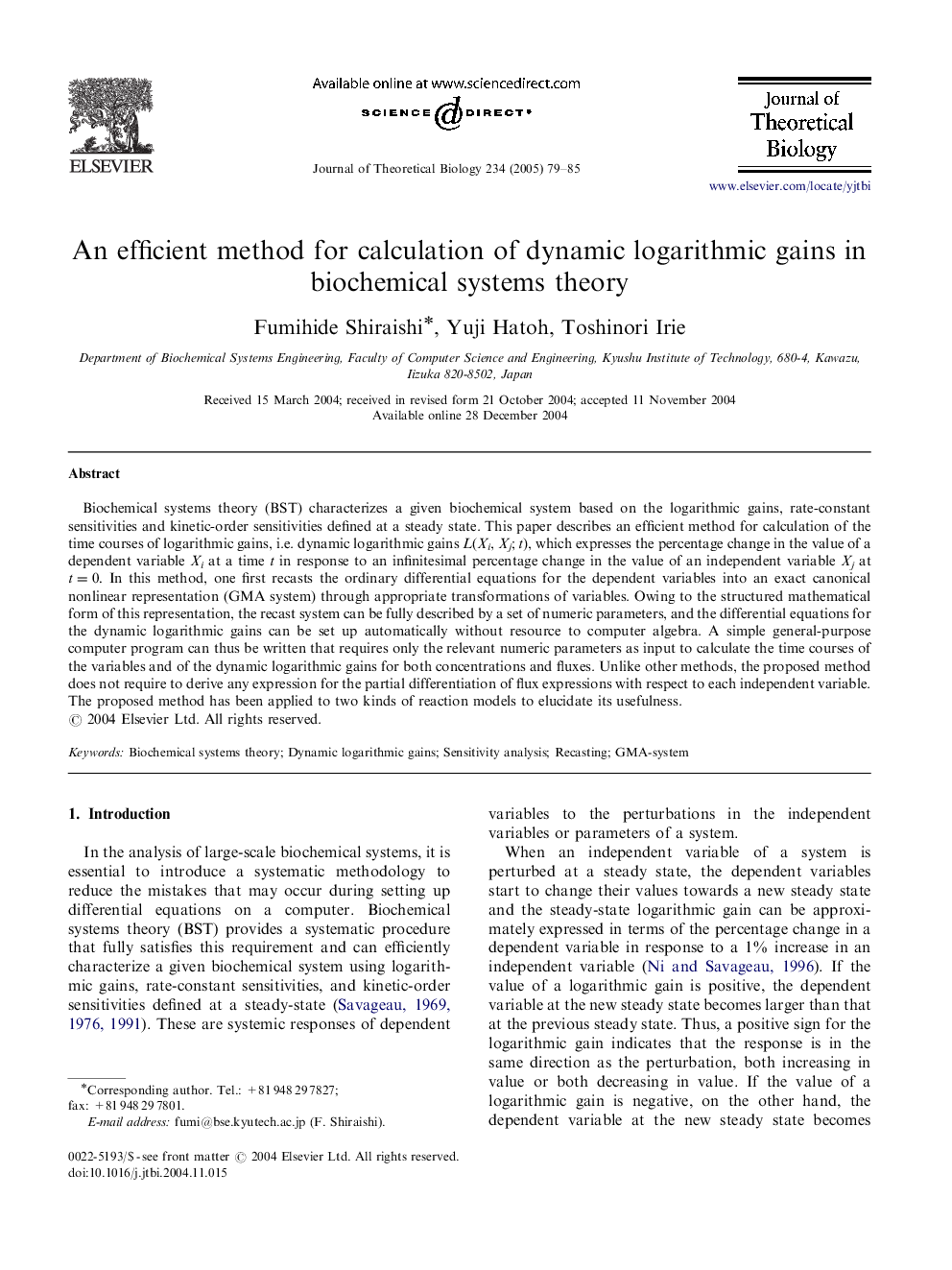| Article ID | Journal | Published Year | Pages | File Type |
|---|---|---|---|---|
| 9469723 | Journal of Theoretical Biology | 2005 | 7 Pages |
Abstract
Biochemical systems theory (BST) characterizes a given biochemical system based on the logarithmic gains, rate-constant sensitivities and kinetic-order sensitivities defined at a steady state. This paper describes an efficient method for calculation of the time courses of logarithmic gains, i.e. dynamic logarithmic gains L(Xi, Xj; t), which expresses the percentage change in the value of a dependent variable Xi at a time t in response to an infinitesimal percentage change in the value of an independent variable Xj at t=0. In this method, one first recasts the ordinary differential equations for the dependent variables into an exact canonical nonlinear representation (GMA system) through appropriate transformations of variables. Owing to the structured mathematical form of this representation, the recast system can be fully described by a set of numeric parameters, and the differential equations for the dynamic logarithmic gains can be set up automatically without resource to computer algebra. A simple general-purpose computer program can thus be written that requires only the relevant numeric parameters as input to calculate the time courses of the variables and of the dynamic logarithmic gains for both concentrations and fluxes. Unlike other methods, the proposed method does not require to derive any expression for the partial differentiation of flux expressions with respect to each independent variable. The proposed method has been applied to two kinds of reaction models to elucidate its usefulness.
Related Topics
Life Sciences
Agricultural and Biological Sciences
Agricultural and Biological Sciences (General)
Authors
Fumihide Shiraishi, Yuji Hatoh, Toshinori Irie,
